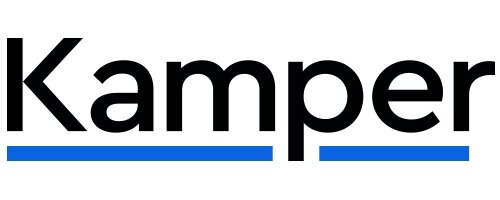Federal Budget 2021/2022
SUMMARY FOR INDIVIDUALS AND SMALL BUSINESS
“Small Business is the engine room of our economy”
BUSINESS
Key notes for business owners:
Employer superannuation guarantee will increase to 10% as at 1 July 2021
Company tax rate - 25% base rate entities (2021-22 income year)
Superannuation guarantee $450 monthly minimum threshold has been scrapped as at 1 July 2022.
TEMPORARY FULL EXPENSING
Temporary full expensing will now be extended until 30 June 2023.
Temporary full expensing allows eligible businesses with aggregated annual turnover or total income of up to $5 billion to deduct the full cost of eligible depreciable assets.
TEMPORARY LOSS CARRY-BACK
Temporary loss carry-back will be extended by one year. This will allow eligible companies to carry-back tax losses from the 2022-23 income year to offset previously taxed profits as far back as the 2018-19 income year.
Companies with aggregated annual turnover of up to $5 billion can apply tax losses incurred during the 2019-20, 2020-21, 2021-22 and now the 2022-23 income years to offset tax paid in 2018-19 or later years. The tax refund will be available to companies when they lodge their 2020-21
APPRENTICESHIP WAGE SUBSIDY
The Boosting Apprenticeship Commencements wage subsidy is being expanded.
The number of eligible places will be uncapped and the duration the 50 percent wage subsidy applies is increasing to 12 months from the date an apprentice or trainee commences with their employer.
Businesses of any size can claim this subsidy for new apprentices or trainees that commence from 5 October 2020 to 31 March 2022, with the subsidy capped at $7,000 per quarter per apprentice or trainee.
EMPLOYEE SHARE SCHEMES
The Government is supporting Australian companies to attract and retain talent by removing the cessation of employment taxing point for tax-deferred Employee Share Schemes (ESS) that are available for all companies.
By removing the cessation of employment taxing point, the measure will result in tax being deferred until the earliest of the remaining taxing points:
• in the case of shares, when there is no risk of forfeiture and no restrictions on disposal
• in the case of options, when the employee exercises the option and there is no risk of forfeiting the resulting share and no restrictions on disposal
• the maximum period of deferral of 15 years.
Example:
ABCDE Technology Limited, an Australian company, provides its employee Tamara shares under an ESS. Tamara is granted the shares on 1 October 2022, which will vest on 31 August 2025 after certain conditions are met. On 31 December 2023, Tamara leaves her employment to pursue other opportunities but continues to be entitled to acquire the shares. Under the current law, Tamara would be taxed at the time she ceases employment before she has acquired the shares. Under the new arrangements, Tamara would be taxed at the next deferred taxing point when there is no risk of forfeiture and no restrictions on disposal of the shares.
DIGITAL ECONOMY STRATEGY
SELF ASSESS LIFE OF INTANGIBLES
Taxpayers will be able to self-assess the tax effective lives of eligible intangible depreciating assets acquired from 1 July 2023, including patents, registered designs, copyrights and in- house software.
This will align the tax treatment of intangibles with tangible assets and allow business to adopt a more appropriate useful life for their intangible assets.
INDIVIDUALS
LOW AND MIDDLE INCOME TAX OFFSET
The LMITO will remain in place for another year which is worth up to $1,080 for individuals and $2,160 for couples.
SELF-EDUCATION EXPENSE DEDUCTIONS
The Government is removing the exclusion of the first $250 of deductions for prescribed courses of education.
Previously all self-education deductions had to be reduced by $250.
MODERNISING INDIVIDUAL TAX RESIDENCY RULES
The Government will replace the individual tax residency rules with a new framework that is easier to understand.
The primary test will be a simple ‘bright line’ test: a person who is physically present in Australia for 183 days or more in any income year will be an Australian tax resident.
Individuals who do not meet the primary test will be subject to secondary tests that depend on a combination of physical presence and measurable, objective criteria.
INNOVATION AND GROWTH
PATENT BOX
MEDICAL & BIOTECH INDUSTRY
The Government is encouraging investment in, and the retention of, Australian medical and biotech technologies by introducing a patent box.
Only granted patents, which are applied for after the Budget announcement, will be eligible. The patent box encourages businesses to undertake their R&D in Australia and keep patents here.
From 1 July 2022 , income derived from Australian medical and biotech patents will be taxed at an effective concessional corporate tax rate of 17%. Normally corporate income is taxed at 30 per cent or 25 per cent for small and medium companies.
TAX RELIEF
BREWERS AND DISTILLERS
The Government is increasing the excise refund cap for distillers and brewers to support jobs and further grow Australia’s alcohol manufacturing sector.
From 1 July 2021, all eligible brewers and distillers will receive full remission (up from 60 per cent) of any excise they pay on the alcohol they produce up to a cap of $350,000 each financial year (increased from $100,000).


